You might have an egg allergy, or you plan on going vegan. But you don’t want to give up on those delicious baked goods. Don’t worry! You can use these egg substitutes in baking.
I’ve always thought that a good mother knows how to make awesome baked goods for her children. Maybe because when I was a child my mom loved spending time in the kitchen and making something sweet. Every day I’d come home from school, I would find a warm lunch and some cookies. It’s lovely to be spoiled with a warm soup and a nice brownie.
When I became a mother, at first, I didn’t follow this family tradition. I was afraid of gaining weight and I avoided making cakes or cookies at home. I mean, I did make some baking goods, but not as often as I thought I would. This changed when my daughter asked me to bake more things for her. So, I did, for a few months. But then I had a medical issue and I decided to go vegan for a couple of months. I wondered how I can make sweets from then on?
There are many reasons people choose to eliminate eggs from their diet for a short or longer time: choosing to be vegan or vegetarian, religious beliefs, the conditions chickens are raised in, cholesterol concerns, or allergies. Whatever your reasons are, you will find uses for these egg substitutes in baking.
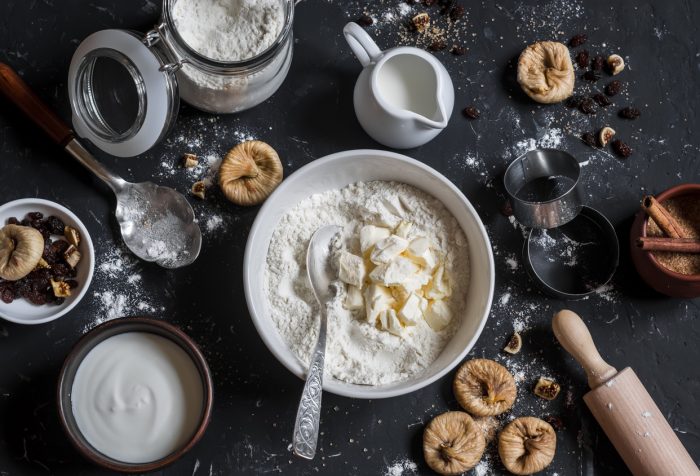
5 most successful egg substitutes in baking
Eggs are used for stand-alone baking dishes, binding, and moisture. Eggs in baking recipes are commonly used as leavening agents, which help the dough rise. The same results can be achieved without eggs.
1. Flax seeds – for binding and as a leavening agent
Flax seeds have a nutty flavor. When ground, they work as egg substitutes in baking, because they are an excellent binder and leavening agent. You can make many baked goods and pancakes using flax seeds instead of eggs. If you want to replace one egg, swap it with a mixture of 1 tablespoon of ground flax seeds and 3 tablespoons of water.
2. Chia seeds – for binding
If you combine chia seeds with water, they expand and form a thick gel that is very similar in texture to raw eggs. Chia seeds have almost no flavor, so they’re one of the best egg substitutes in baking because they won’t change the taste of cookies and cakes.
Use the same ratio as the one for flax seeds: mix 1 tablespoon of chia seeds with 3 tablespoons of warm water for each egg in the recipe. Stir gently and wait about five minutes, until you make a gel, then add it to the dough or batter mixture.
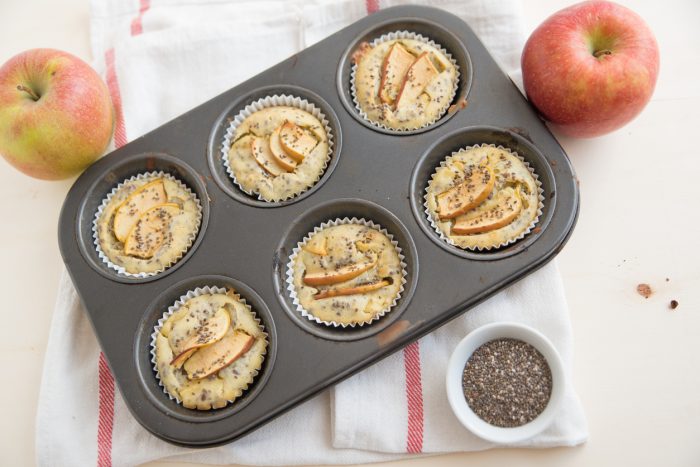
3. Baking soda and vinegar – leavening agent and fluffy baked goods
When apple cider vinegar is combined with baking soda, it helps the dough rise, making it a perfect egg leavening replacement. Use 1 teaspoon of baking soda and mix it with 1 tablespoon of white vinegar to replace 1 egg.
4. Banana – for binding and moisture
Bananas bind the ingredients and add lots of moisture, plus some extra sweetness in muffins, cookies, and cakes. Half of a mashed banana works great to replace one egg. It’s best suited for cookies and pancakes. When you use bananas, be careful to adjust the sugar quantity in your recipe.
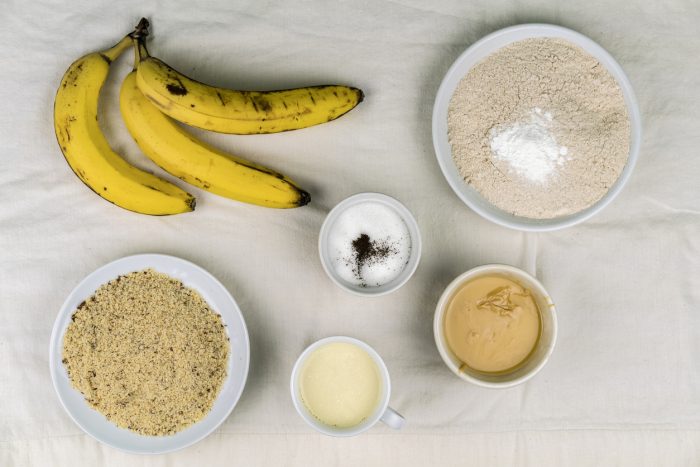
5. Applesauce – for moisture
Applesauce is an egg substitute and a popular healthy replacer for oil in many baked goods. It adds moisture to any batter. Use 1/4 cup of unsweetened applesauce for every egg in most baking recipes. If you only have sweetened applesauce, then reduce the quantity of sugar in the recipe. Applesauce will add some flavor, so make sure that it’s compatible with the other ingredients.
PLUS: Silken Tofu
I left tofu in the end because it’s a great substitute for recipes that call for a lot of eggs, such as quiches or custards, not only for cakes and cookies.
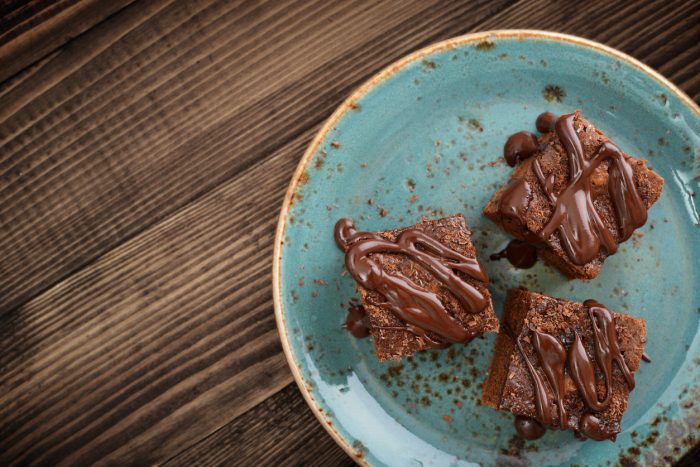
There are two main kinds of tofu: silken and regular. Silken tofu, also called soft tofu, has a softer consistency than regular tofu and will fall apart if not handled carefully. Silken tofu is relatively flavorless, but it can make baked goods dense, so it’s best used in brownies and some quick breads and cakes. How can you use it? Blend or process the silken tofu and use 1/4 cup to replace each egg in a recipe.
On the other hand, firm tofu is a great substitute for eggs in eggless egg salad and breakfast scrambles. Use the same ratio, 1/4 cup of pureed tofu for 1 egg.
Because some egg substitutes in baking may change the taste or texture you’re used to, try these options one at a time, and choose the one that will make your dish the most satisfying.

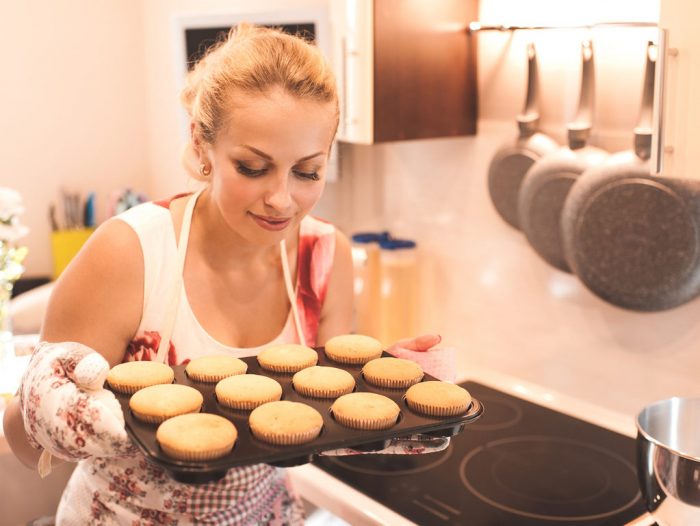

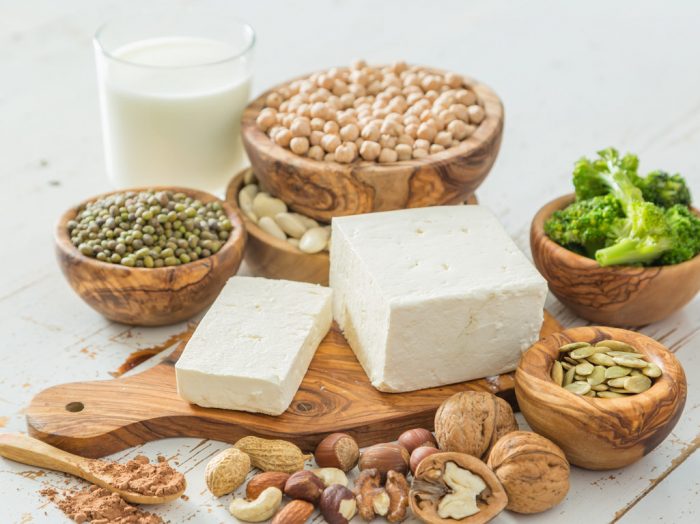



Most interesting!